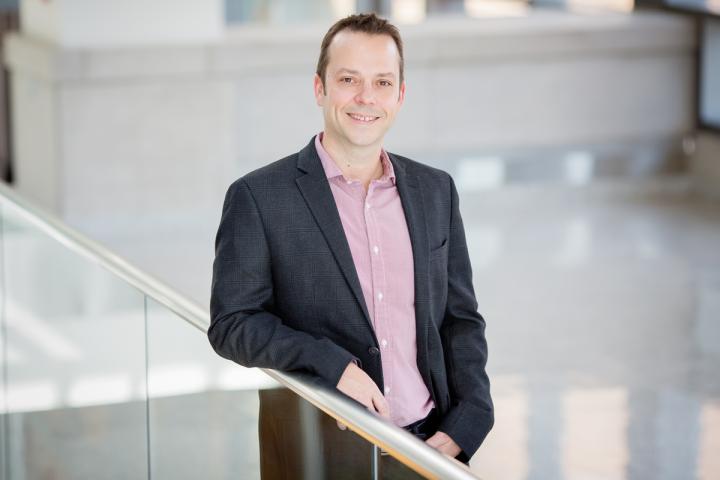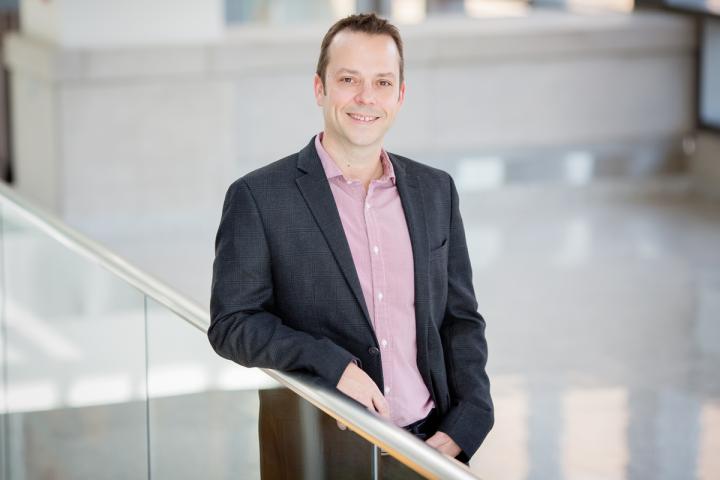
Credit: Photo by L. Brian Stauffer
CHAMPAIGN, Ill. — Melanoma is a particularly difficult cancer to treat once it has metastasized, spreading throughout the body. University of Illinois researchers are using chemistry to find the deadly, elusive malignant cells within a melanoma tumor that hold the potential to spread.
Once found, the stemlike metastatic cells can be cultured and screened for their response to a variety of anti-cancer drugs, providing the patient with an individualized treatment plan based on their own cells.
"The vast majority of suffering in cancer is caused by metastasis, and these stemlike cells are believed to be the culprit," said Kristopher Kilian, a professor of bioengineering and of materials science and engineering who led the research. "But when you take a patient's cells from a biopsy or excised tumor, they loose their stem cell characteristics once you take them out of the body. We are using chemistry to make designer surfaces to reprogram them to that stemlike state."
Kilian's team focused on proteins found in the tumor's environment within the body. They took 12 protein segments that bind to the surface of cancer cells, then mixed and matched them into 78 different combinations in an effort to recreate the body's complex chemical environment.
The researchers created arrays of chemical combinations on glass slides and cultured mouse melanoma cells on them to see which combinations triggered the cells to return to their metastatic state. They published their findings in the journal ACS Central Science.
"A plastic dish coated with these simple peptide combinations could be used to take a patient's cells, reactivate them to a stemlike state, and screen drugs on them. It's a way to efficiently generate these stemlike metastatic cells to develop patient-specific models for individualized medicine," Kilian said.
Screening drugs to specifically target the stemlike cells is important because they may not respond to the same drug that targets the main tumor, Kilian said.
The researchers said the array technique for finding stemlike cancer cells could work for many different types of cancer. They currently are working on breast and prostate cancers.
"This is where having a high-throughput technique like an array is very powerful," Kilian said. "If you have all the chemical combinations on a single chip, you find out which ones work. If you can isolate the metastatic cancer cells, you can understand them, and then you can treat them."
###
The National Science Foundation supported this work.
Editor's notes: To reach Kris Kilian, call 217-244-2142, email: [email protected].
The paper "Combinatorial discovery of defined substrates that promote a stem cell state in malignant melanoma" is available online.
DOI: 10.1021/acscentsci.6b00329
Media Contact
Liz Ahlberg Touchstone
[email protected]
217-244-1073
@NewsAtIllinois
http://www.illinois.edu
############
Story Source: Materials provided by Scienmag





